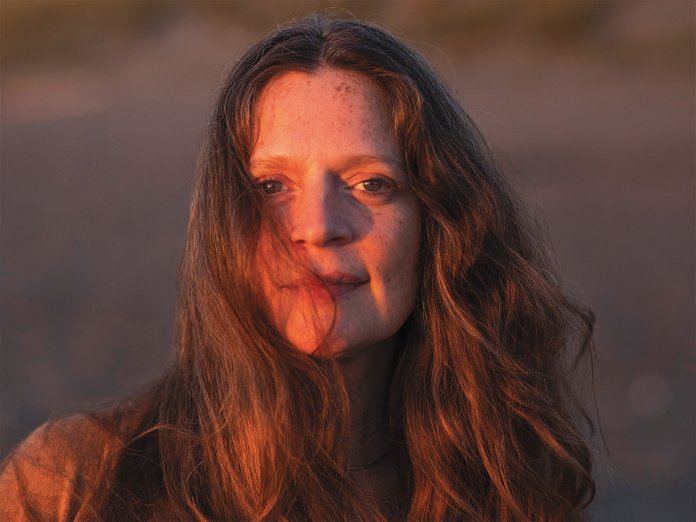It’s 20 years now since Meg Baird co-founded Espers in her home city of Philadelphia. With Baird sharing lead vocals with Greg Weeks, the band became a mainstay of New Weird America, striking a noble balance between psychedelic exploration and deference to the set texts of folk-rock. Espers fizzled out amicably in 2010, by which point Baird had already embarked on a solo career. However, lacking the extrovert quality of peers like Devendra Banhart and Joanna Newsom, Baird has always flown somewhat under the radar.
All-acoustic debut Dear Companion (2007) seemed to suggest she was happiest reinterpreting folk standards; even the two original compositions on that record cleaved closely to the form. But since then, there’s been an ever-so-gradual evolution in her songwriting and a broadening of her vision. Furling finally feels like the full blossoming of a long-hinted-at talent.
Whereas the credits for 2011’s Seasons On Earth read like a who’s who of the Philly underground – Chris Forsyth, Steve Gunn, Mary Lattimore – pretty much everything on Furling is played by Baird, who now resides in the far north of California, and her partner Charlie Saufley. But as the duo’s contributions to psych-folk supergroup Heron Oblivion prove, they can do noisy and expansive as well as hushed and reverent. What’s new is a kind of rich, jazz-adjacent warmth, reminiscent of The Weather Station’s Ignorance or Joni Mitchell’s Hejira. A couple of songs are led by piano instead of guitar, with a bonus dusting of vibraphone. Her drums, though slow and simple, are more prominent than before, lending the music a steady flow, and occasionally even something approaching a groove.
Baird is so confident in this new mode that opener “Ashes, Ashes” shimmers and swirls luxuriously for six minutes without the ‘song’ beginning at all; there’s just her gorgeous wordless vocal, dividing itself in two, then two again, creating some dazzling harmonic patterns. As the coda of “Twelve Saints” confirms, harmonising with yourself rather than others can create a unique resonance, a slightly disquieting closeness Baird exploits to stunning effect.
Baird’s professed obsession with David Roback manifests itself on “Star Hill Song”, which sounds a lot like prime Mazzy Star. Hear how she subtly layers three separate guitar parts – an acoustic strum, a vaguely country-ish lead and a Spanish background shimmer, plus brushed drums and a lazy tambourine – to create an instant tableau of twilit romantic regret.
While the music marks a subtle progression through life, the lyrics tally up what’s been lost – the inevitable but still painful cost of living. “Early one evening, just call out my name / And you’ll see it’s not the same any more” run the final lines of “Cross Bay”, which reinstates a more familiar style, Baird singing high and defiantly fragile over fingerpicked acoustic guitar like perennial touchstone Vashti Bunyan. But the song’s indelible melody and flurry of unexpected chords at the end underline an increased confidence in her songwriting powers. This means she’s also able to provide ample consolation for those creeping midlife crises. “Blossoms falling down / Sometimes it’s better than being found”, she sings, as “Ship Captains” transitions expertly from chilly, uncertain verse to warm, enveloping chorus. “We’ll make it alright again”.
The vibraphone returns on “Twelve Saints”, shadowing acoustic guitars that drip with silvery reverb and melancholy. Baird claims she’s never played vibes before, but sitting there in the studio, it proved impossible to resist (“Especially being such a huge Tim Buckley fan,” she says, “there was no way I wasn’t going to at least see what it sounded like.”). Tim Green’s Louder Studios, in the foothills of the Sierra Nevada mountains, turned out to be an inspirational location all-round; festooned with fallen branches, it feels like you’re recording in a forest glade. On one occasion, Baird and Green even pulled the microphone cords outside to capture the sound of the local treefrogs, credited on the album as ‘The Grass Valley Ghost Pine Chorus’.
But unlike those early Espers albums, Furling doesn’t attempt to play up its wyrd, mystical qualities. The emotion on display feels very upfront, whether it’s the blissful realisations of “Will You Follow Me Home?” – “Someone likes me, someone loves me!” – or the sad acceptance of living with death on the album’s final track, “Wreathing Days”. It’s a straightforward piano-and-vocal affair, but the way the chord pattern suddenly brightens halfway through, as if providing a shoulder to cry on, is breathtaking.
Baird says she forced herself to write songs with more structure and movement, to avoid making the same record over and over again. By doing so, she’s brought feelings to the surface that previously she may have kept veiled. It feels like a significant breakthrough.



